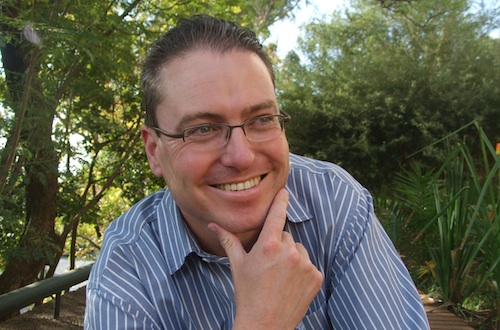
Deputy home affairs minister Malusi Gigaba wants to introduce legislation that will compel Internet service providers to block pornographic material online. It’s all in the name of protecting the children, of course.
According to a Sapa wire report last week, Gigaba intends “fast-tracking the passage of a yet-to-be-drafted law that will compel Internet service providers to filter content provided to users to ensure it does not contain any pornography”.
He reportedly made the remarks at a symposium arranged by the Film & Publication Board to find ways of protecting children from the harmful effects of porn on the Web and mobile phones.
“Despite recent amendments to the law and other efforts to stop the devastating effect on children of their access to pornography, it’s not enough,” board legal affairs manager Dumisani Rorwana said in a statement. “The law as it stands is not working, so we have no choice but to take it to the next level.”
That sounds ominous, especially given that these noises are being made at the same time as the ANC is ratcheting up talk of the need for a media tribunal, and as concern continues to grow over the Protection of Information Bill.
These developments suggest a growing hostility in the ruling party to the freedom of expression that forms a cornerstone of our constitution.
Of course, efforts to protect children from the deleterious effects of hardcore pornography and violence, especially on free-to-air television, ought to be welcomed.
What mustn’t happen is what Gigaba appears to be proposing, namely taking a sledgehammer to the problem and, in the process, violating the constitution and taking the country back to the sort of blanket censorship not seen since the 1980s. SA is not Iran or China.
Most South Africans probably support Gigaba’s moves. Generally speaking, we’re a socially conservative bunch. But that doesn’t make curtailing free speech acceptable.
But what you and I choose to do in the privacy of our own homes should not be the concern of politicians or bureaucrats. And, despite the attendant problems, the responsibility of shielding children from inappropriate material ought to rest, for the most part, with their parents or guardians.
Yes, there needs to be — and is — legislation and regulation to prevent children from being exposed unwittingly to images that could harm them. That’s why movies have age restrictions and the SABC can’t replace the evening news with Debbie Does Dallas.
The Film & Publication Board declared after last week’s symposium that there was a need to block certain gaps in the broadcasters’ code of conduct that had resulted in “unsuitable content being aired during the past few months going unpunished”.
That’s the correct approach. It could be argued that programming on free-to-air channels like e.tv or the channels operated by the public broadcaster ought to reflect the general mores of society.
Unlike on the Internet or on pay TV, it’s difficult for parents to block material on free-to-air channels they deem inappropriate for their children. Online, on the other hand, there are plenty of software programs designed to do exactly that.
It’s true that there’s a world of filth on the Internet. But expecting Internet service providers to block access to it is a step too far. What’s needed is responsible parenting, not the sinister hand of a government censor.
Though SA has one of the world’s most liberal constitutions, it would behoove us all to ensure our politicians don’t trample on these rights. It’s a slippery slope to repression.
- Duncan McLeod is editor of TechCentral; this column is also published in Financial Mail
- Subscribe to our free daily newsletter
- Follow us on Twitter or on Facebook


